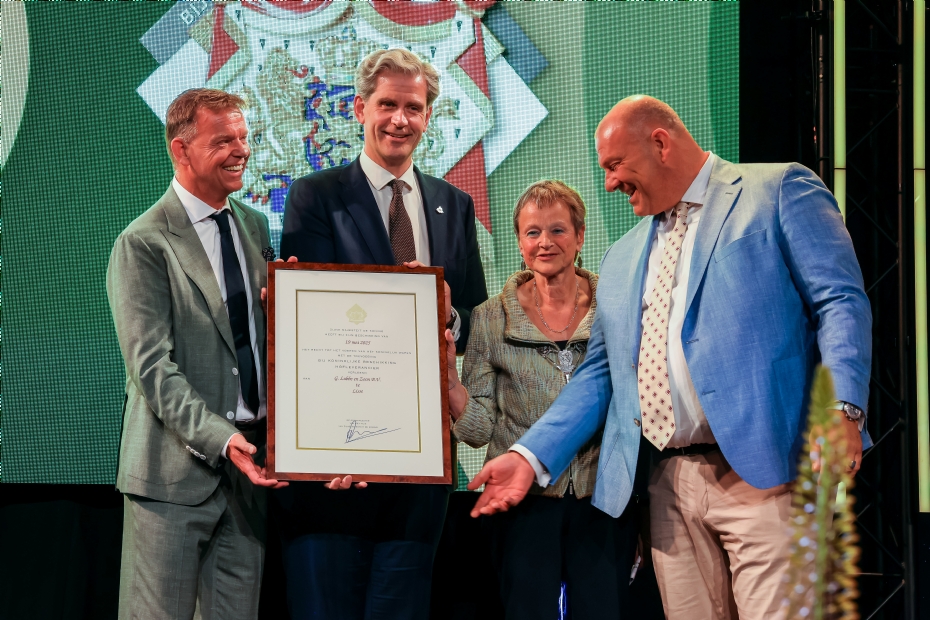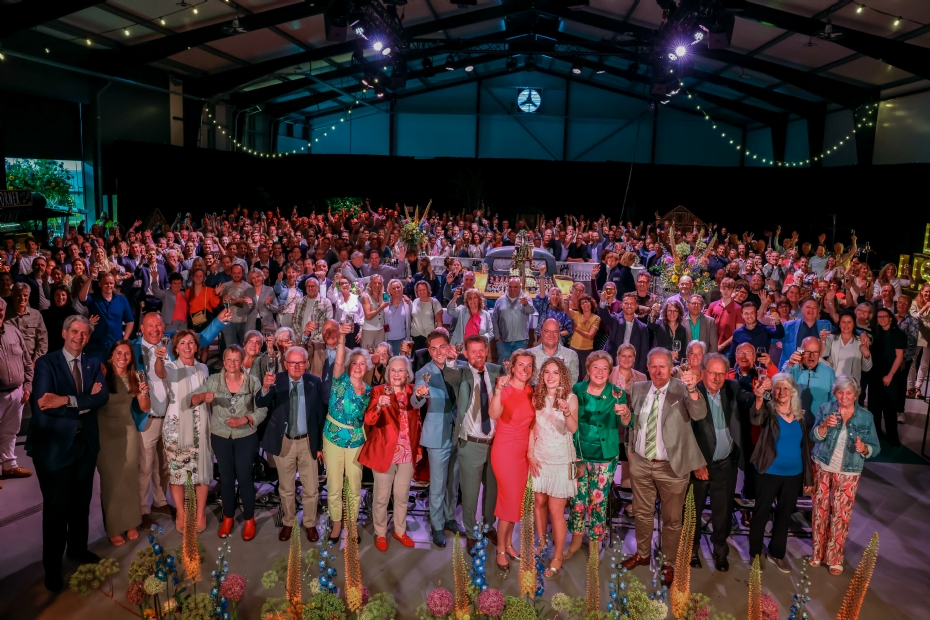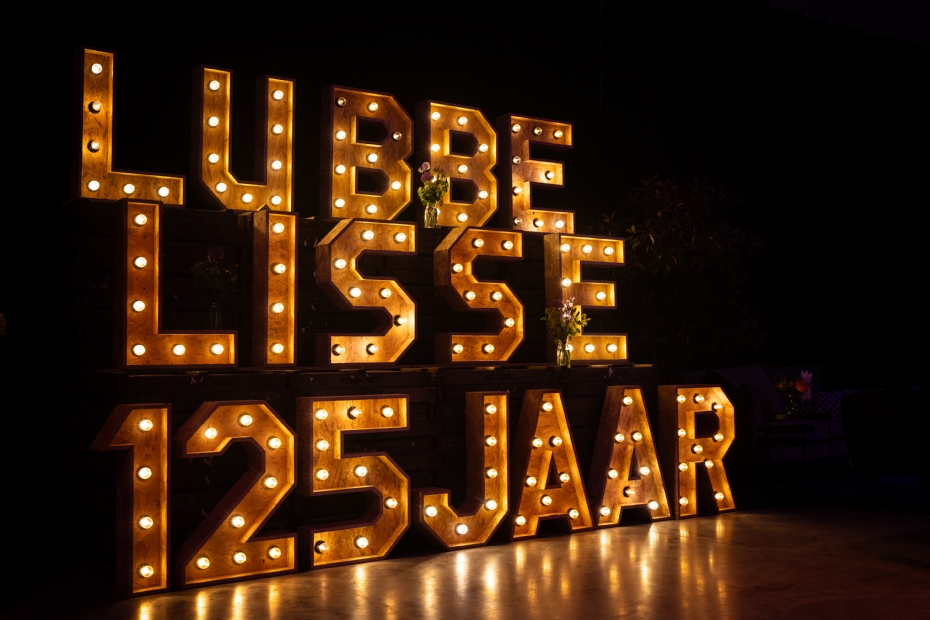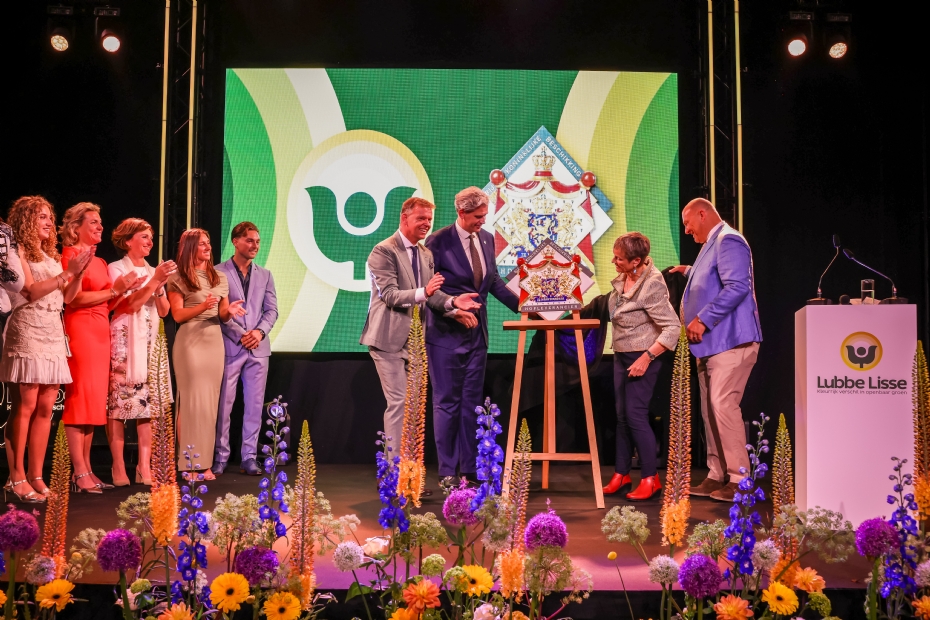From flower bulbs to Brexit: 125 years of Lubbe Lisse |
|
|
|
|
 |
| 162 sec |
Royal warrant marks the peak of a bulb grower's legacy
On 28 May, flower bulb company Lubbe Lisse celebrated its 125th anniversary. What began as a small nursery of perennials, flower bulbs, and vegetable seeds has grown into an international player with an eye for biodiversity, technology, and tradition. Highlight of the anniversary: the awarding of the title 'Purveyor to the Royal Household', a recognition of the family's long-standing history and reliable entrepreneurship. "It's a beautiful honorary title," says co-owner Michael Lubbe.
| With Michael Lubbe (left) and co-owner Ronald Lubbe, the fourth generation is now at the helm of Lubbe Lisse (Image: Aad van Vliet) |
The royal designation nearly slipped through their fingers. "To meet the criteria, we had to provide the original deed of incorporation," says Lubbe. "But that was lost during a bombing in World War II." In the end, the family managed to prove the company's founding through old correspondence. This enabled them to receive the recognition, in the presence of the King's Commissioner and the mayor. Symbolic? Certainly. But not without value: "It really is the crown on your work."
from hybridization to reputation
The roots of Lubbe Lisse go back to 1900. Lubbe's great-grandfather cultivated perennials, flower bulbs, and vegetable seeds, but had a particular passion: daffodil hybridization. "That's how the Actaea variety, among others, was developed — and it's still being cultivated today. He really made a name for himself with that."
 | | The awarding of the royal warrant, with the King's Commissioner and the mayor of Lisse in the center (Image: Martine Goulmy) |
|
|
After World War I, the next generation took over. Exports to England began slowly until the Second World War abruptly halted that trade. "That market collapsed. But after the war, during the rebuilding phase, we found farmers in England who were interested in new varieties developed by the next Lubbe generation. At first, we shipped just a few kilos per variety, but years later it was already a few tons."
|
|
"Our quaintness is actually appreciated"
| |
|
The relationship with English farmers evolved into a special collaboration. "Those farmers eventually asked if we wanted to buy back the bulbs they grew. After all, we had the customers to sell the yield to. That model worked wonderfully for many years."
international growth, changing rules of the game
From the third and fourth generations onward, the market expanded into Germany, Belgium, and the rest of the UK. About thirty years ago, the mechanical planting of bulbs took off. Since 1999, Lubbe has been at the helm together with his cousin Ronald Lubbe, during a period in which the playing field changed significantly. Lubbe: "Back in the day, deals were made on the back of a cigar box with the motto 'a man's word is his bond.' Nowadays, everything is tied up in contracts."
 | | The 125th anniversary of Lubbe Lisse was extensively celebrated (Image: Martine Goulmy) |
|
|
 | | Image: Martine Goulmy |
|
|
This increased professionalization had an impact on many levels. "It's maybe not always fun, but it also brings opportunities. Back then, an order for 30,000 crocuses was huge — today, not so much. But we're still very happy with it. That scale increase is visible everywhere, from field beds to the size of planting machines."
At the same time, the company faced more regulation: "You had to spend more and more time dealing with rules and procedures, whether for import/export or public procurement. Brexit didn't make things easier either. But it's the reality the next generation is already used to. They won't know any different."
The family spirit appears to have remained intact. "We've always been a warm, family-oriented business. Our 'quaintness' is something our customers really appreciate."
a shift in assortment and sustainability
In recent decades, the assortment has also shifted. The tulip has lost ground. "Customers increasingly asked for varieties that support biodiversity. That brings you to naturalizing species, like daffodils, crocuses, and Muscari. These provide food for insects and return year after year."
Lubbe Lisse increasingly combines bulbs with native wildflower seeds. "That's a great development too. With these mixtures of bulbs and wildflowers, we aim to create the longest possible flowering season. That's becoming more and more attractive to clients."
|
|
"Soon the younger generation can decide where the train goes. We just got it rolling."
| |
|
from family business to investment company
Since last year, investment company Axeco Participaties holds a stake in the business. "We wanted to safeguard the future of Lubbe Lisse, and there was no clear succession. They're good guys with strong financial knowledge, but no expertise in bulbs. That makes us a great match. I see fertile ground for collaboration."
 | | Image: Martine Goulmy |
|
|
looking ahead: passing the baton
In the past 36 years, Lubbe has travelled extensively as a representative. "I used to wonder: how long before I'll be good at this? It really takes years, but looking at where we are now, I think we must be doing something right. Though there's always room for improvement."
As for the future, Lubbe is calmly optimistic. "Our kids aren't taking the lead just yet, but you can tell—they're watching and thinking along. When the time comes, they'll be ready to take over. Then they get to decide where the train goes. We just got it moving."
This article was previously published on 14 July 2025 on the website of Stad + Groen.
| LOG IN
with your email address to respond.
|
|
|
| There are no comments yet. |
|